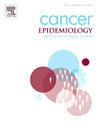Dose-response relationship between aspirin and gastric cancer risk: A systematic review and meta-analysis
IF 2.3
3区 医学
Q3 ONCOLOGY
引用次数: 0
Abstract
Gastric cancer (GC) continues to be a significant global health burden, ranking as the fifth most prevalent malignancy and the fourth leading cause of cancer-related mortality worldwide. Emerging evidence suggests that aspirin, a well-known cyclooxygenase (COX) inhibitor, may play a role in reducing the risk of gastric cancer. However, the dose-response relationship between aspirin use and gastric cancer risk remains unclear. This systematic review and meta-analysis aimed to elucidate this relationship by analyzing data from cohort studies published between January 1, 2014, and January 1, 2024. A comprehensive search of PubMed, Embase, and Web of Science yielded six eligible studies involving over 1.5 million participants. The results demonstrated a significant inverse association between aspirin dose and gastric cancer risk, with a relative risk (RR) of 0.73 (95 % CI: 0.57–0.94) for the highest versus lowest aspirin dose. Dose-response analysis revealed a nonlinear relationship, suggesting that higher doses of aspirin were associated with a greater reduction in gastric cancer risk. Subgroup analyses suggested regional variations in the protective effect of aspirin, with stronger associations observed in Asian populations. Our results provide strong evidence of the association between dose of aspirin use and risk of gastric cancer. These findings highlight the potential role of aspirin in gastric cancer chemoprevention and offer valuable insights for future research and clinical applications.
阿司匹林与胃癌风险的剂量反应关系:一项系统综述和荟萃分析
胃癌(GC)仍然是一个重大的全球健康负担,是全球第五大最常见的恶性肿瘤和第四大癌症相关死亡原因。越来越多的证据表明,阿司匹林,一种众所周知的环氧化酶(COX)抑制剂,可能在降低胃癌的风险中发挥作用。然而,阿司匹林使用与胃癌风险之间的剂量-反应关系尚不清楚。本系统综述和荟萃分析旨在通过分析2014年1月1日至2024年1月1日发表的队列研究数据来阐明这一关系。对PubMed、Embase和Web of Science的全面搜索产生了六项符合条件的研究,涉及150多万参与者。结果显示阿司匹林剂量与胃癌风险之间存在显著的负相关,阿司匹林最高剂量与最低剂量的相对危险度(RR)为0.73(95 % CI: 0.57-0.94)。剂量-反应分析揭示了一种非线性关系,表明高剂量阿司匹林与胃癌风险的更大降低有关。亚组分析表明阿司匹林的保护作用存在地区差异,在亚洲人群中观察到更强的相关性。我们的研究结果为阿司匹林剂量与胃癌风险之间的关联提供了强有力的证据。这些发现突出了阿司匹林在胃癌化学预防中的潜在作用,并为未来的研究和临床应用提供了有价值的见解。
本文章由计算机程序翻译,如有差异,请以英文原文为准。
求助全文
约1分钟内获得全文
求助全文
来源期刊

Cancer Epidemiology
医学-肿瘤学
CiteScore
4.50
自引率
3.80%
发文量
200
审稿时长
39 days
期刊介绍:
Cancer Epidemiology is dedicated to increasing understanding about cancer causes, prevention and control. The scope of the journal embraces all aspects of cancer epidemiology including:
• Descriptive epidemiology
• Studies of risk factors for disease initiation, development and prognosis
• Screening and early detection
• Prevention and control
• Methodological issues
The journal publishes original research articles (full length and short reports), systematic reviews and meta-analyses, editorials, commentaries and letters to the editor commenting on previously published research.
 求助内容:
求助内容: 应助结果提醒方式:
应助结果提醒方式:


